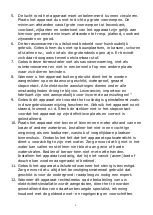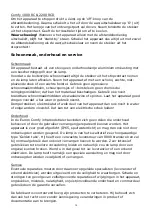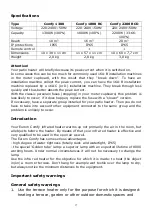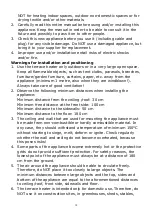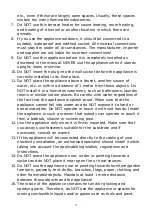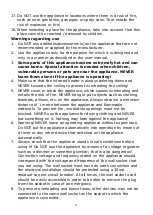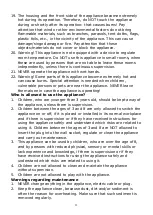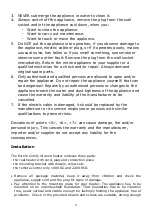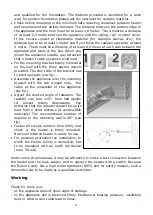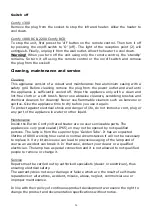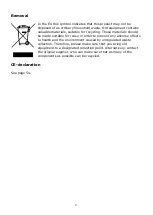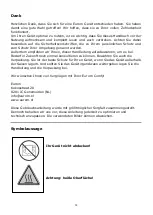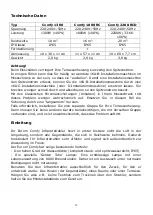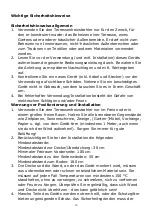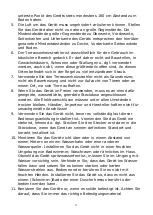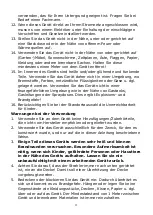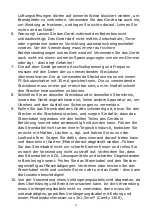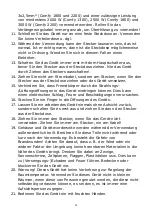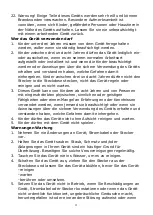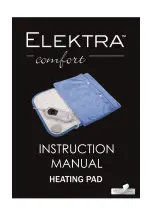
20
17.
Do NOT use the appliance in locations where there is a risk of fire,
such as near gas tanks, gas pipes or spray cans. That entails the
risk of explosion or fire!
18.
When selecting a place for the appliance, take into account that this
place cannot be reached / accessed by children.
Warnings regarding use
1.
Do NOT use additions/accessories in/on the appliance that are not
recommended or supplied by the manufacturer.
2.
Use the appliance only for the purpose for which it is designed and
only in a manner as described in the user manual.
3.
Some parts of this appliance become extremely hot and can
cause burns. Special attention is needed when children,
vulnerable persons or pets are near the appliance. NEVER
leave them alone if the appliance is operating!
4.
Make sure that the infrared heater is always pointing down and
NEVER towards the ceiling to prevent overheating the ceiling!
5.
NEVER cover or block the appliance, which causes overheating and
entails the risk of fire. NEVER hang or put objects such as clothing,
blankets, pillows, etc. on the appliance. Always observe a minimum
distance of 1 metre between the appliance and flammable
materials. To prevent fire, ventilation openings must not be
blocked. NEVER use the appliance for drying clothing and NEVER
put something on it. Nothing may lean against the appliance!
6.
Warning! NEVER leave an operating appliance without supervision.
Do NOT put the appliance automatically into operation by means of
a timer or any other device that switched on the appliance
automatically.
7.
Always check that the appliance stands in safe conditions before
using it! Do NOT use the appliance by means of a voltage regulator
such as a dimmer or something similar; that is also dangerous!
Connection voltage and frequency stated on the appliance should
correspond with the voltage and frequency of the wall socket that
you are using. The wall socket must have an earth connection and
the electrical installation should be protected using a 30mA
residual-current circuit breaker. At all times, the wall socket used
should be easily accessible in order to be able to remove the plug
from the socket in case of an emergency.
8.
To prevent overloading and blown fuses, other devices may not be
connected to the same wall socket as the socket to which the
appliance is connected.

